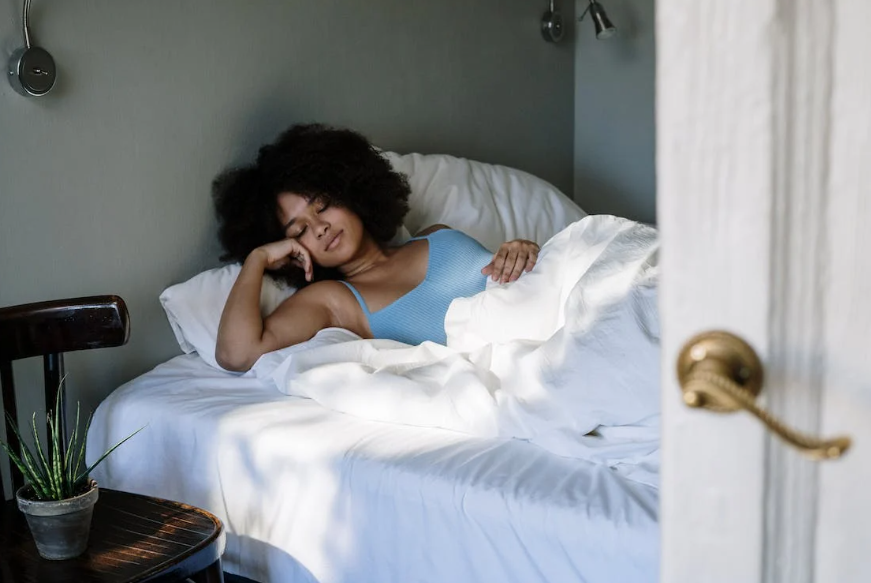Mindfulness Sleep Meditation
Using simple and effective techniques, these article will introduce you to the tools that can assist in eliminating sleep disorders and reducing stress and anxiety experienced at home and at work.

Selfpause Affirmation App
Download the app to get 1,000’s of affirmation meditations and everything you need to write, record and listen to your own.
If you find it hard to relax yourself before bed, you can try guided meditation. Guided meditations are great for improving sleep quality. They are not just for bedtime – you can also practice them while you’re awake. These meditations will help you relax before bed and make you feel calm before you fall asleep.
They can be done out of bed

If you find it hard to fall asleep at night, mindfulness sleep meditations are a great way to get a good night’s sleep. You can practice these meditations out of bed with the help of a guide or audio recording. These meditations usually focus on positive feelings or relaxation. They should leave you feeling calm and ready to fall asleep.
Meditation is a great way to relax and reduce stress. It helps the body and mind feel relaxed and can combat the fatigue you feel throughout the day. It also helps you fight off many sleep disorders, which are a result of stress. Regardless of age or gender, you can practice these out of bed meditations.
A simple way to practice meditation is to lie on your back and close your eyes. Many guided meditations require you to follow a series of steps, while other meditations can be performed without a guide. Generally, the more you practice, the more your mind becomes quieter. Meditations can include breathing exercises to help regulate your breath. Slow breathing signals your body to sleep.
Some people have reported that mindfulness sleep meditations can help them sleep better at night. They find that meditations can help them sleep better and have more clarity in their sleep. In addition, some people report that they have lucid dreams that involve spiritual themes. They also feel more alert when they wake up.
Practicing meditations before bed can help you fall asleep faster, get deeper sleep, and improve your quality of sleep. Meditations can also help you deal with pain, anxiety, and depression. They can also reduce the likelihood of waking up during the night. This is a great solution for those who find it difficult to fall asleep.
Studies show that meditations improve the quality of sleep in older adults. They also improve immune system function and prevent chronic diseases. Moreover, they also reduce the risk of heart attacks. One study from the Medical College of Wisconsin showed that people who practiced meditation before sleep had 50% fewer heart attacks. In addition, they also reduced the risk of hypertension and helped lower blood pressure.
In addition to improving the quality of sleep, meditations can reduce cortisol levels in the body, which are directly linked to stress. The result is a more relaxed state and more restful sleep. Mindfulness sleep meditations can help with stress-related problems like jet lag and shift work.
They can help you feel more relaxed and calm before bed

The goal of mindfulness sleep meditations is to create a relaxed and peaceful environment before bed. This includes a quiet room, preferably without any distractions. You should also make sure to turn off your phone and turn off other electronics. It’s also helpful to have a white noise machine running at a moderate volume. The room should be free of light or noise, and you should wear comfortable clothing. Candles, which are traditionally calming, can also be a good idea. You should also blow them out before you go to sleep.
Meditations for sleep can improve sleep quality and decrease anxiety and stress. They help you to build parts of the brain that help you be aware of the present moment. They can also help you to fall asleep faster and sleep better. For example, focusing on the sensation of your breath or the color of your eyes may help you sleep better.
You can choose a meditation method that works best for you. Some meditation programs have audio tracks that you can listen to during the night. Others have guided meditations that you can do with a video or a podcast. The audios may come with a host or teacher who speaks through the meditation process.
Meditation for sleep can help you get better sleep and reduce the risk of insomnia and other sleep disorders. Insomnia is a serious problem that can affect your daily life. Not only can it affect your health, but it can also affect your ability to make decisions and maintain relationships. If you are experiencing chronic insomnia, you should see a physician to make sure you don’t have a medical condition that may prevent you from sleeping.
Another benefit of using meditation for sleep is that it can help you adjust to a new sleep schedule. It can also reduce your anxiety and reduce the amount of time you take to fall asleep. Regular meditation can increase the levels of serotonin in the brain, which helps improve sleep.
Practicing mindfulness sleep meditations regularly can help you feel more calm and relaxed before bed. The key is to learn how to focus on the present moment. While the process may be challenging at first, the more you practice, the more comfortable you’ll feel and sleep better.
Various types of meditations are helpful for different sleep patterns. You can choose an audio recording or download an app that has guided meditations. There are also guided meditations available on YouTube. You can also seek help from an expert if you’re unsure of how to meditate.
Guided sleep meditation is a great way to relax before bed. This technique involves moving your attention away from thoughts and body sensations and focusing on a single mantra. It’s been shown to help people sleep better, and it’s a proven technique for reducing anxiety and insomnia.
Our Top FAQ's
To practice mindfulness sleep meditation, you can follow these steps:
- Find a comfortable place to lie down or sit.
- Close your eyes and focus on your breath. Notice the sensation of the air entering and leaving your body.
- When your mind wanders, gently redirect your attention back to your breath.
- You can also try focusing on a mantra, a word or phrase that you repeat to yourself, or on a specific body part or sensation.
- Continue this practice for as long as you like, but aim for at least a few minutes at a time.
Some specific techniques or exercises you can try during mindfulness sleep meditation include:
- Body scan: Lie down and focus on each part of your body, starting at your toes and working your way up to the top of your head. As you focus on each part, take a deep breath in and exhale slowly, releasing any tension or discomfort.
- Loving-kindness meditation: As you lie in bed, silently repeat phrases of love and compassion to yourself, such as “May I be happy, may I be healthy, may I be at peace.” You can also extend this practice to others, silently repeating phrases of love and compassion to people in your life or to all beings.
- Progressive muscle relaxation: Tense and relax each muscle group in your body, starting at your feet and working your way up to your head. As you tense each muscle group, take a deep breath in, and as you relax, exhale slowly.
The frequency of your mindfulness sleep meditation practice will depend on your individual needs and goals. Some people find that practicing for just a few minutes before bedtime helps them sleep better, while others may need to practice for longer periods of time to see improvement. Experiment with different lengths of time and see what works best for you.
Mindfulness sleep meditation can be a helpful tool for addressing specific sleep issues such as insomnia and sleep apnea. By helping you relax and clear your mind, mindfulness meditation can make it easier to fall asleep and stay asleep. However, it’s important to note that mindfulness sleep meditation is not a replacement for medical treatment, and if you have a serious sleep disorder, it’s important to speak with a healthcare provider.
There are generally no risks or drawbacks to using mindfulness sleep meditation as a sleep aid. However, if you find that it’s not helpful or if it causes you stress or anxiety, it’s important to speak with a healthcare provider or a mental health professional. They can help you determine if mindfulness sleep meditation is the right approach for you and suggest alternative strategies if needed.
